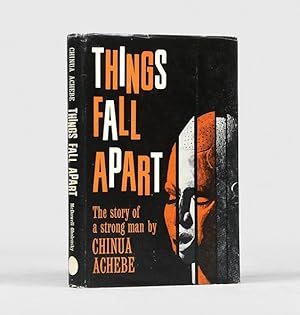

There are, as critics are quick to point out, earlier examples of extended narrative written in and about Africa by African writers. Still, there has been no shortage of attempts to explain his literary achievement, an achievement that starts with the fact that Things Fall Apart (1958), the first of the novels in his “African trilogy” defined a starting point for the modern African novel. If we could explain it fully, we could reproduce it, and it is of the nature of genius to be irreproducible. The genius of Chinua Achebe, like all genius, escapes precise analysis. The reader will find in this convenient volume several seminal studies by two eminent scholars of Achebe's intriguing genius that authenticate him as among the best literary craftsmen of the 20th century and undeniably Africa's best.Eliot Elifoson/National Museum of African Art/Smithsonian InstitutionĬhinua Achebe at his house in Enugu, Nigeria, 1959

The critical responses to Achebe's works in this book, address adequately almost every aspect of his creative imagination and craftsmanship. The exceptional genius of Achebe touched many traditional and cultural bases in his fiction, essays, and memoirs. His greatest legacy to 20th century world literature probably is his pioneer role in the 'nativization' and ingenious use of the English language. Chinua Achebe's unique distinctions as a novelist lie in the areas of informed vision and artistic integrity. This volume presents Achebe's articulation of the traditional and modern in African narrative techniques-linking the skills of the traditional artist (oral performer) to those of the modern writer how the modern African creative artist can embellish his/her art with oral resources such as folktales, proverbs, sayings, festivals, songs, riddles, and myths.

The essays remind the reader how Achebe brought to the field of world literature new perspectives and vitality that distinguished the African art of storytelling from imaginative creativities elsewhere.

The volume articulates unequivocally how Achebe provided the message and pioneered a confident voice to African writers to express the message with audacity repudiate without equivocation, any form of distortions of African past and present realities. It addresses the questions of Achebe's role in establishing the African art of the novel, his theories and standards for the criticism of African writing. Remembering a Legend: Chinua Achebe recaptures for the literary world the inimitable legacies of Chinua Achebe (1930-2013), Africa's leading novelist and literary philosopher of the 20th century.


 0 kommentar(er)
0 kommentar(er)
